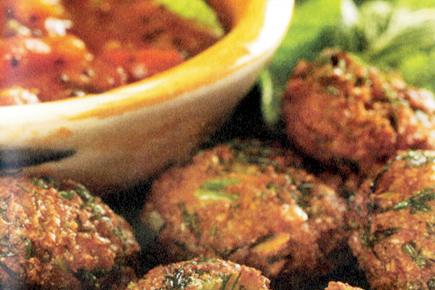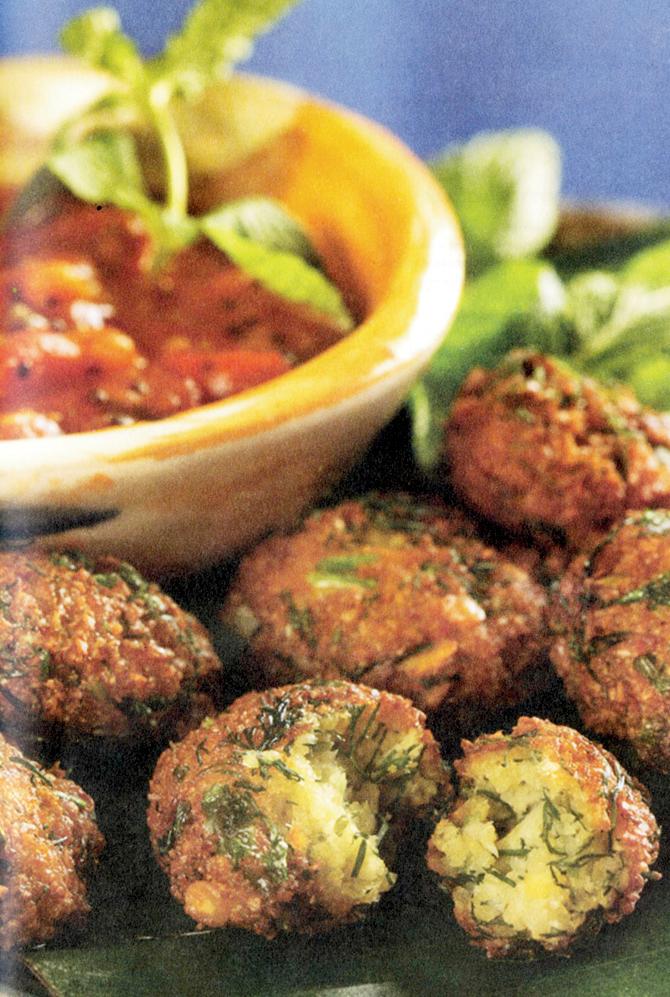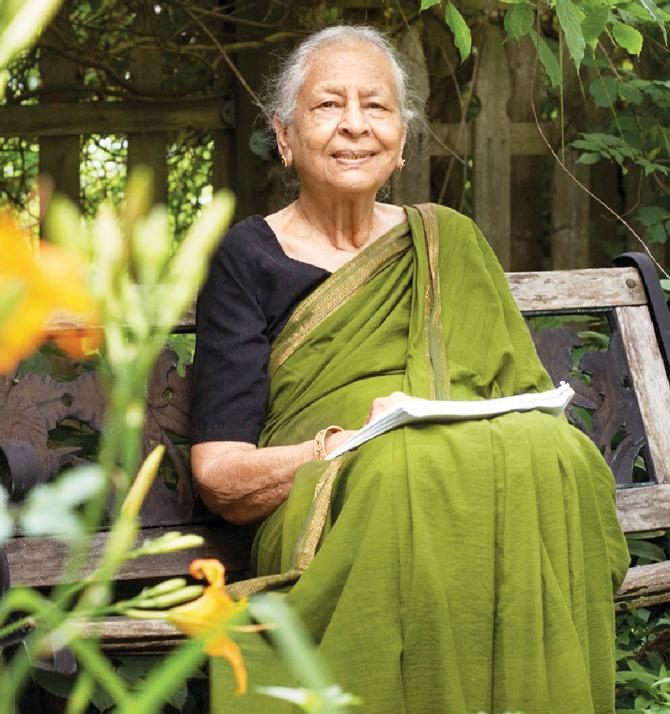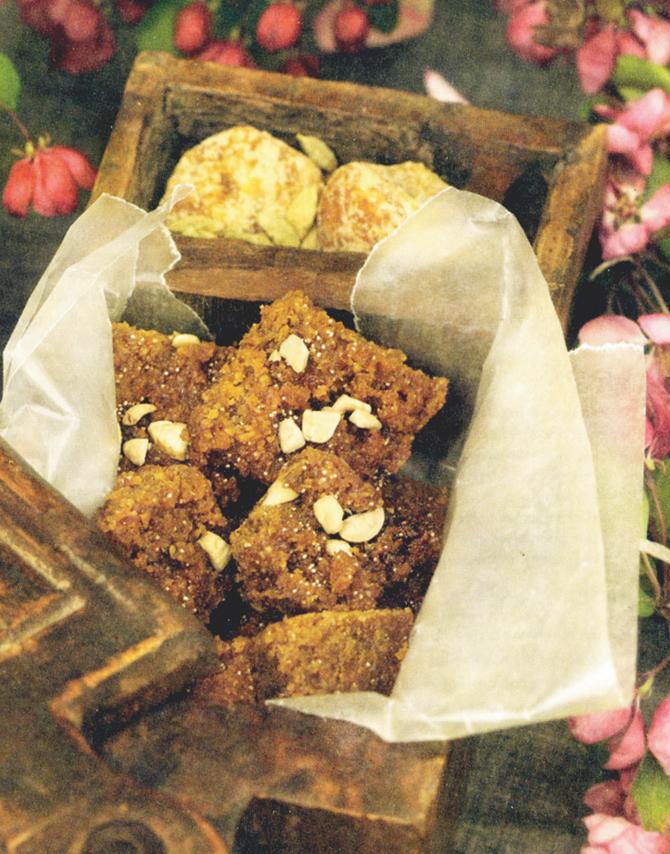Rukmini Srinivas, television chef and author of Tiffin: Memories and Recipes of Indian Vegetarian Food, on interweaving family history with long-forgotten recipes

Masala Vadai
The tiffin, writer ECP Hull once wrote, should ‘invariably be light, and consist only of bread or biscuit, fruits and a glass of sherry or claret’. In the book — The European in India or Anglo-Indian’s Vade-mecum: Anglo-Indian Social Customs and Native Character: AND Medical Guide for Anglo-Indians — he cautions: Heavy tiffins make men heavy, sleepy and interfere with due performance of active work in the after-part of the day.

Masala Vadai
ADVERTISEMENT
Television chef Rukmini Srinivas’s latest cookbook-cum-memoir, titled Tiffin: Memories and Recipes of Indian Vegetarian Food, is replete with such delightful tidbits about the meal. For instance, the colloquial term ‘tiffin’ (which first appeared in AD 1807 in Anglo-Indian writing), she writes, is believed to have been derived from ‘tiffing’, ‘an eighteenth-century English slang term for sipping'.
In an email interview, Srinivas explains that it was at the insistence of her two daughters that she wrote the book. “They wanted me to record the recipes not only for their benefit but for everyone’s children, so that, we do not lose our heritage,” she explains. Traditional recipes are no longer in vogue, points out the 87-year-old. “In my bookshelf, with over hundreds of cookbooks, I couldn’t find even one about the tiffin. So, I decided that it would be a good subject for a cookbook-cum-memoir,” adds the author, who began listing the recipes while corresponding with her daughters who flew to the US for higher education. “They would write in asking for recipes of dishes they craved.” When the Internet came in, this correspondence took place over email, and, later over the phone, she adds.

Rukmini Srinivas writes about new methods of cooking and traditional recipes in her book
The writer fills the pages of her book with tales about living in pre- and post-Independent India, interspersed with her trysts with food. There are references to her rectangular, metal school dabba and the culture of ‘small meals’, stories about her mother’s ‘pre-puberty marriage’ at 13 and subsequent shift to Quetta (now Pakistan) where she learnt to make a mean biryani from her Pushtoon landlady, ‘quixotic’ uncle and ‘crazy’ aunts. But, the central figure of most stories is perhaps her father, whose lifelong concern about diet and health made the tiffin an important part of the family’s meals. “I grew up in British India in a vegetarian family.
My father, who was an officer in the Military Accounts Department, would be posted to a different city in India every three years,” Srinivas tells us. “He suffered from asthma and that, coupled with his dread of obesity, made him careful about his diet and when he ate the last meal of the day.” Hence, light meals post sunset consisted of light soups, thin, well-cooked dals, salads, fruits, steamed dalia upma with chopped vegetables, aval (or, beaten rice flakes) and so on.

Cashew Gulkand Barfi
With great fondness, Srinivas recalls her mother’s cooking as a ‘daily treat’. “Some days, my mother would ask us just before we left for school what we would like for tiffin. My favourites were ras malai and sabudana vada, while my sister’s picks were gulab jamun and masala dosai. But what we as children did not know was that if served at tiffin time, masala dosai, or for that matter even sada dosai, needed to be planned a day in advance. We would have crispy rava dosai, with coconut chutney.”
The writer, who married anthropologist MN Srinivas in 1955, travelled across India and abroad. “I made many friends through food, learnt new methods of cooking and experimented with new recipes, bringing my own touch to traditional recipes which I share in this book,” she elaborates.
The message of her book, says Srinivas, is simple. “I emphasise the value of food and family, of eating home-cooked food together as a route to good health and well being. I believe that regardless of how busy we may be, cooking a meal is an important part of our lives and it should remain so,” she says.
Excerpts from the book
Dr Chitappa (Srinivas’s uncle) often tried his hand at cooking when my aunt was away with her three young children, visiting her parents ... A connoisseur of south Indian food, Dr Chitappa’s claim to fame was his masala vadai, the south Indian falafel; spicy, crunchy, deep-fried lentil patty, aromatic herbs and pungent with green chillies and sharp onions, I remember them as being fabulous!
I remember one special Deepavali celebration in Tanjore the year my elder sister Kamala was married … for weeks in advance, the Tanjore home kitchen was a hive of activity. My aunt Annam arrived a couple of weeks earlier to help make the sweets. My favourites that Deepavali were sticky coconut toffee, therattipal, cashew gulkand barfi, sweet boondi, chocolate mounds with sweetened coconut, crunchy naada pakoda, gulab jamun (deep purple spongy balls of reduced milk solids floating in an aromatic syrup) and Kanchipuram idli, an interesting and tasty version of the regular rice idli which we routinely had at least once a week for tiffin.
 Subscribe today by clicking the link and stay updated with the latest news!" Click here!
Subscribe today by clicking the link and stay updated with the latest news!" Click here!







